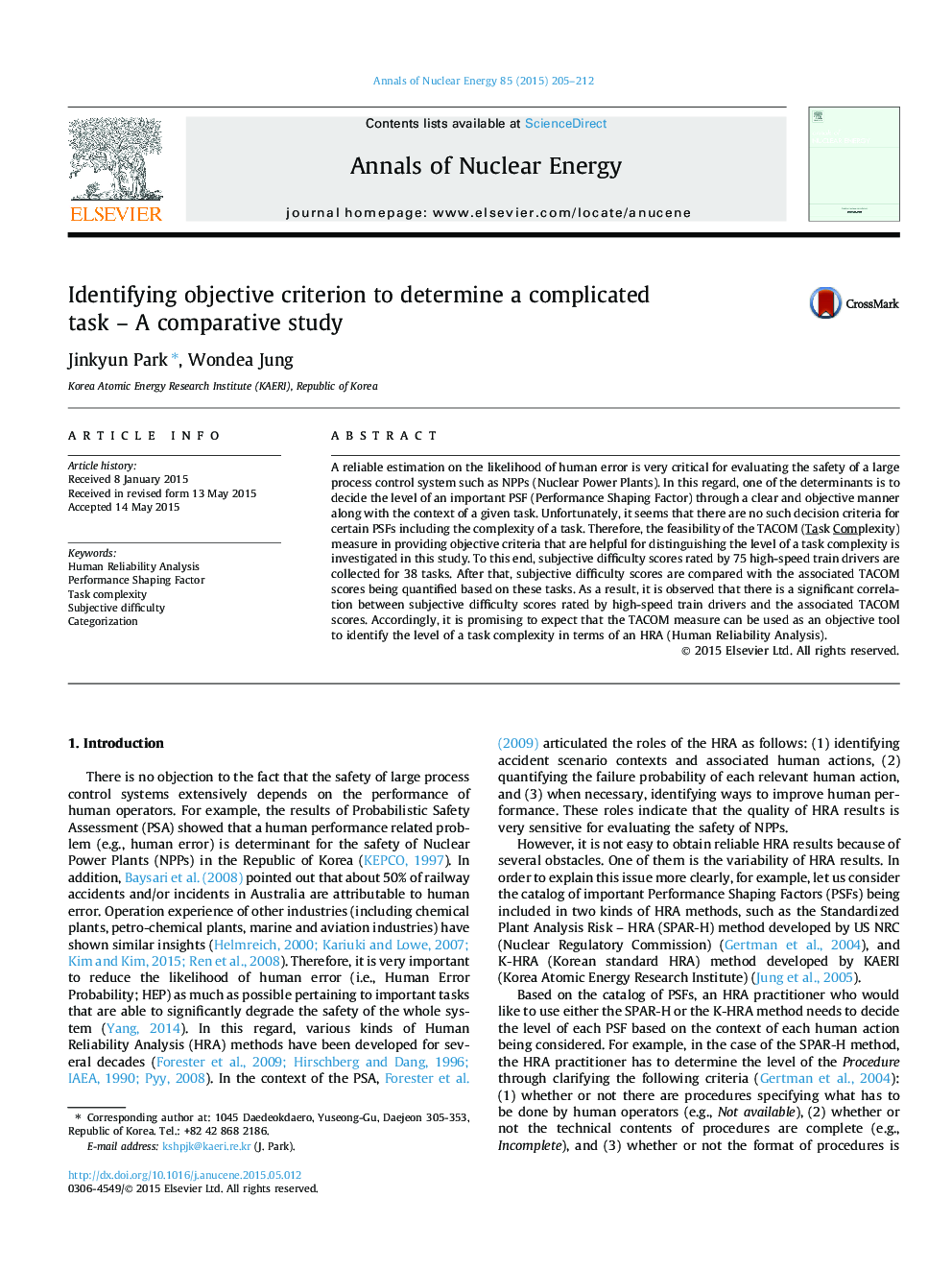| Article ID | Journal | Published Year | Pages | File Type |
|---|---|---|---|---|
| 8068202 | Annals of Nuclear Energy | 2015 | 8 Pages |
Abstract
A reliable estimation on the likelihood of human error is very critical for evaluating the safety of a large process control system such as NPPs (Nuclear Power Plants). In this regard, one of the determinants is to decide the level of an important PSF (Performance Shaping Factor) through a clear and objective manner along with the context of a given task. Unfortunately, it seems that there are no such decision criteria for certain PSFs including the complexity of a task. Therefore, the feasibility of the TACOM (Task Complexity) measure in providing objective criteria that are helpful for distinguishing the level of a task complexity is investigated in this study. To this end, subjective difficulty scores rated by 75 high-speed train drivers are collected for 38 tasks. After that, subjective difficulty scores are compared with the associated TACOM scores being quantified based on these tasks. As a result, it is observed that there is a significant correlation between subjective difficulty scores rated by high-speed train drivers and the associated TACOM scores. Accordingly, it is promising to expect that the TACOM measure can be used as an objective tool to identify the level of a task complexity in terms of an HRA (Human Reliability Analysis).
Related Topics
Physical Sciences and Engineering
Energy
Energy Engineering and Power Technology
Authors
Jinkyun Park, Wondea Jung,
